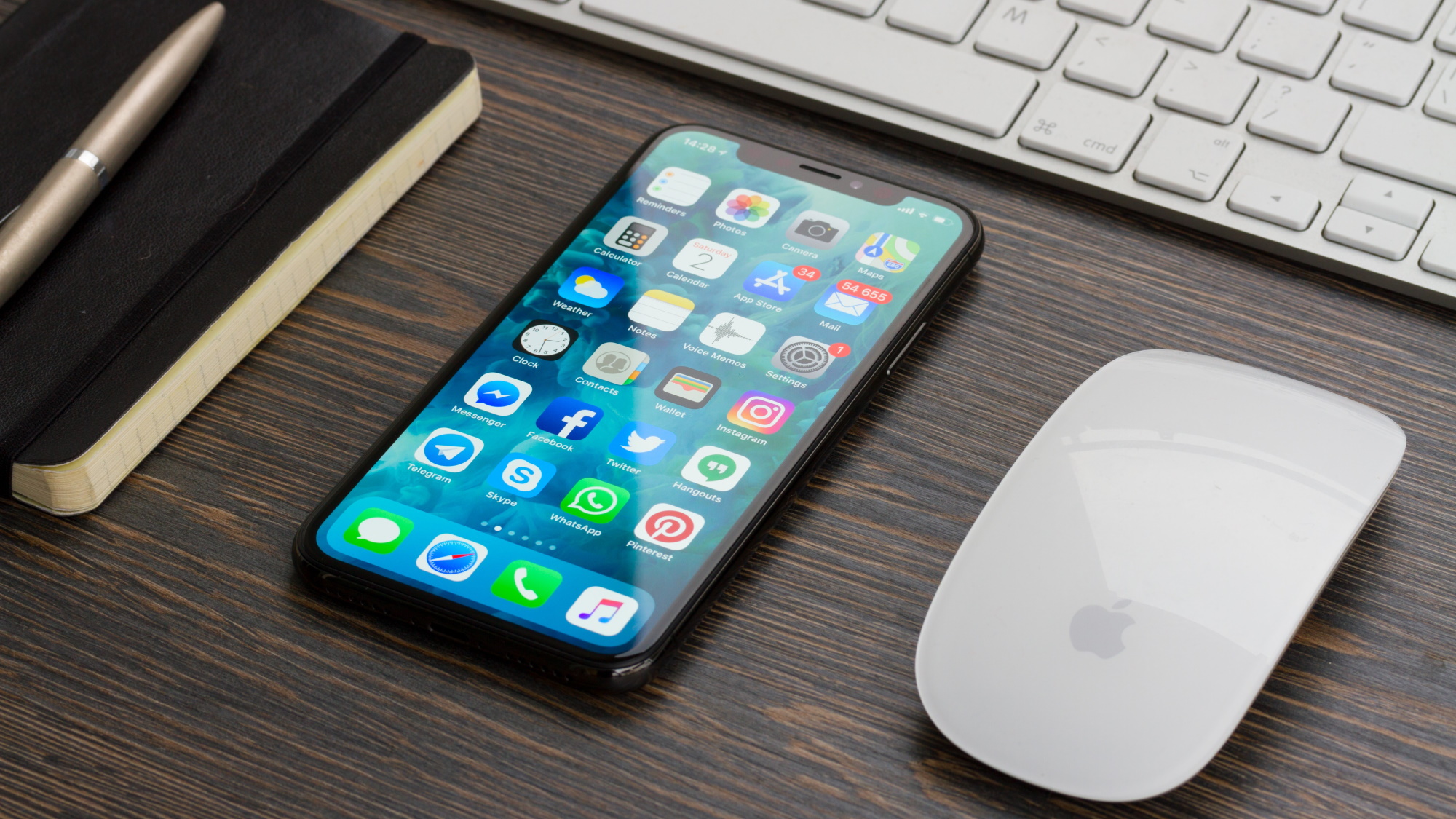

It's fair to say that - to quite a substantial extent - day-to-day life is ruled by how far we can stretch out the battery life of our handset. You may be concerned, then, by how much the best VPN might drain your battery. Particularly when it comes to an iPhone VPN, with these handsets notorious for not having the most efficient battery lives.
With screens stretching to the very ends of the earth (or the width of the smartphone, anyway), not to mention dual, triple and even quad camera modules weighing down the backs of our handsets, smartphones have to work a lot harder. Unfortunately these flagship phones don't necessarily have the big ol' battery cell to support these features and the heavy daily usage a lot of us put our handsets through, either.
Add to that an additional piece of software like a VPN and you may concerned it'll drain your battery even faster. But will the use of a VPN on your iPhone completely deplete the longevity of your battery day-to-day?
We put our top VPN to the test on an iPhone to find out how much a VPN drains iPhone battery, as well as offering advice on ways to salvage your battery life while using a VPN, and explaining why they're a great tool to use on your Apple handset.
ExpressVPN - 3 months FREE with all 1-Year plans
ExpressVPN isn't only our top VPN recommendation for iPhone users, but one of the best overall VPNs across the board. With a stunning app that's every bit as stylish and intuitive as you'd expect on iOS, ExpressVPN also boasts superb security features, amazing speeds, as well as compatibility across a range of devices, ideal if you want a VPN to encompass your entire Apple ecosystem with Mac and iPad clients, too. Watch all the best content from the likes of Netflix, Disney Plus, and iPlayer, too, with the ability to bypass geo-restrictions, all from your iPhone.
Benefit from 3 months added to your 1-Year plan for free, as well as a risk free trial with its 30-day money back guarantee policy all with ExpressVPN.
Test: Does using a VPN drain iPhone battery?
In order to determine whether using a VPN substantially drains the battery on an iPhone, we put an iPhone 12 Pro through the ringer with our top-tier choice ExpressVPN, carrying out three different, every day tasks the average user would carry out. This included:
- Watching Netflix for 15 minutes in each condition with the VPN on and then off
- Scrolling and watching Instagram stories for 5 minutes in each variable
- Browsing on Safari for 5 minutes in each variable
While we carried out this test in a real life context, we kept the control variable of only having the ExpressVPN iPhone app and either Netflix, Instagram, or Safari open. Our other control variable was a consistent connection throughout, relying on Wi-Fi over cellular signal.
Of course, this test won't take into consideration performance on different iPhone models. With an A14 Bionic chip and iOS 14 released with the 12 Pro, the iPhone 12 Pro is currently the best performing iPhone on the market. Results for other models like the iPhone 11, or iPhone SE (2020) could see variations, particularly in far older models like the iPhone 6, 7 or 8.
Sign up to the T3 newsletter for smarter living straight to your inbox
Get all the latest news, reviews, deals and buying guides on gorgeous tech, home and active products from the T3 experts
No, we're not going to pretend that this was done in strict laboratory conditions, but it's also important to note external factors like background refresh settings. Every iPhone owner will have their own range of apps downloaded to their handset, as well as different apps toggled on and off for background refresh. With background refresh meaning apps are constantly running, this means battery usage could be happening elsewhere as well as from our VPN testing. Push notifications were also kept onfrom the likes of iMessage, WhatsApp and emails to replicate real life usage.
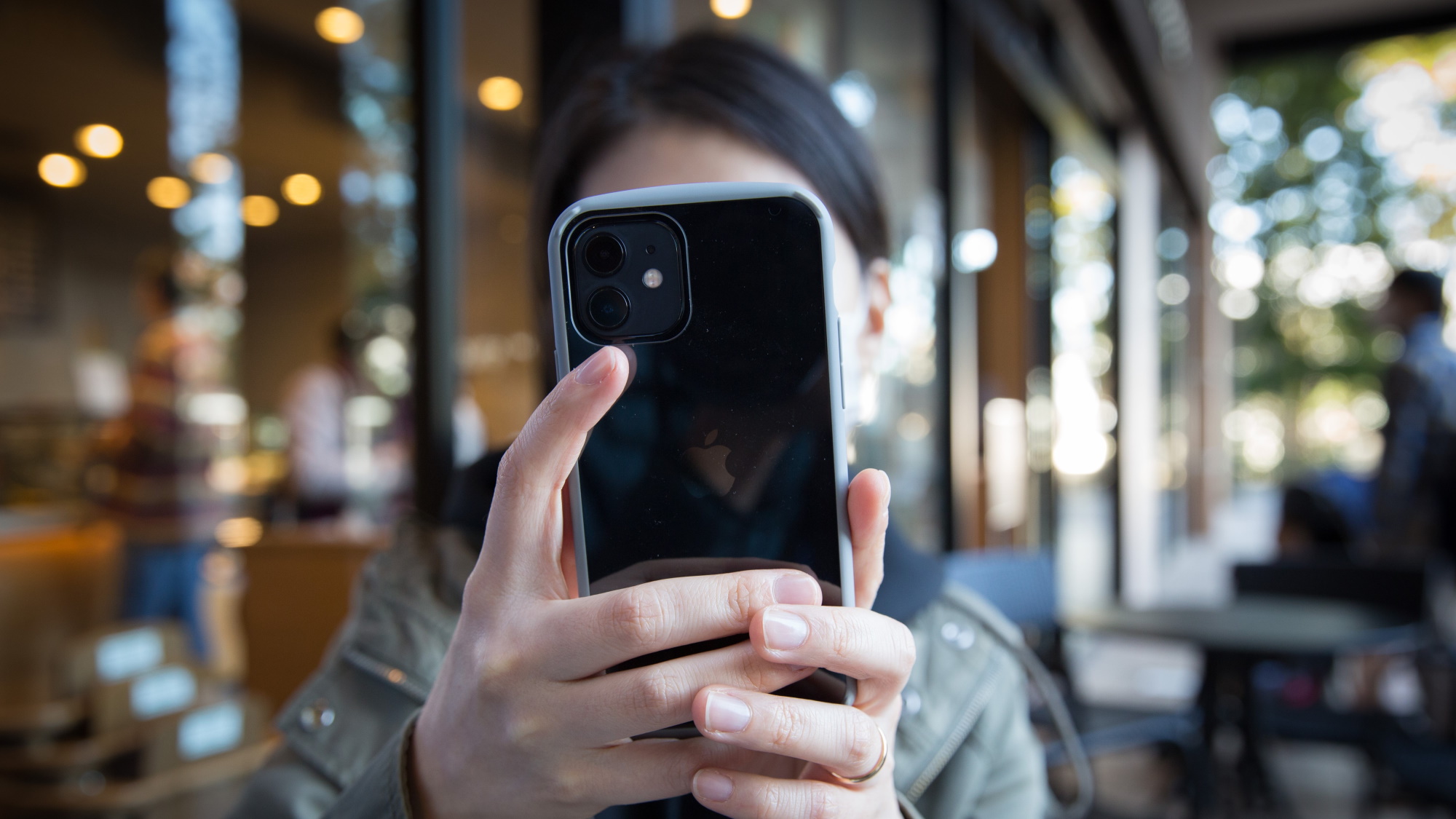
Results: Does using a VPN drain iPhone battery?
The first task we carried out was watching 15 minutes of Netflix with the VPN on and then off. Hopping on to a server in our own country (the UK in this instance) so as not to activate a foreign Netflix library, we continued our rewatch of the cosy, quick-witted Gilmore Girls.
Starting battery life - 97%.
After 15 minutes of Netflix with VPN on - 95%
After 15 minutes of Netflix with VPN off - 93%
During both variables, there was a loss of 2% across both tests.
Next we spent 5 minutes scrolling through Instagram and watching Instagram stories with the VPN on and then off.
Starting battery life - 91%
After 5 minutes of Instagram with VPN on - 90%
After 5 minutes of Instagram with VPN off - 89%
Here with a VPN on battery dropped by 1%, whereas when the VPN was switched off, it stayed the same. While this could be down to having the VPN off, it's fair to say interaction with Instagram content can differ, with both the feed and stories presenting a mix of images and video, with watching video content draining battery more rapidly than loading pictures.
Finally we spent time browsing on Safari for 5 minutes
Starting battery life - 89%
After 5 minutes of Safari with VPN on - 88%
After 5 minutes of Safari with VPN off - 87%
Once again, much like with Netflix, we see the same drop of battery in both variables, this time by 1%.
Diving into Settings, iPhone offers the ability to see your battery health and what apps are sucking up the most battery. 25 minutes of running ExpressVPN in the background is said to use up just 1% of battery. In a 24 hour period with ExpressVPN on continuously, then, this could see a usage of roughly 48% a day if burned through a rate of just under 2% an hour.
What do other tests say about VPN draining iPhone battery?
Of course, our small testing of VPN usage on iPhone wasn't exactly the most strenuous and lacks the wider picture of different ways one might use their iPhone, as well as the plethora of iPhone models in circulation.
However, there's no definitive testing around the web, although some sites speculate that you may lose between 5-15% throughout the day.
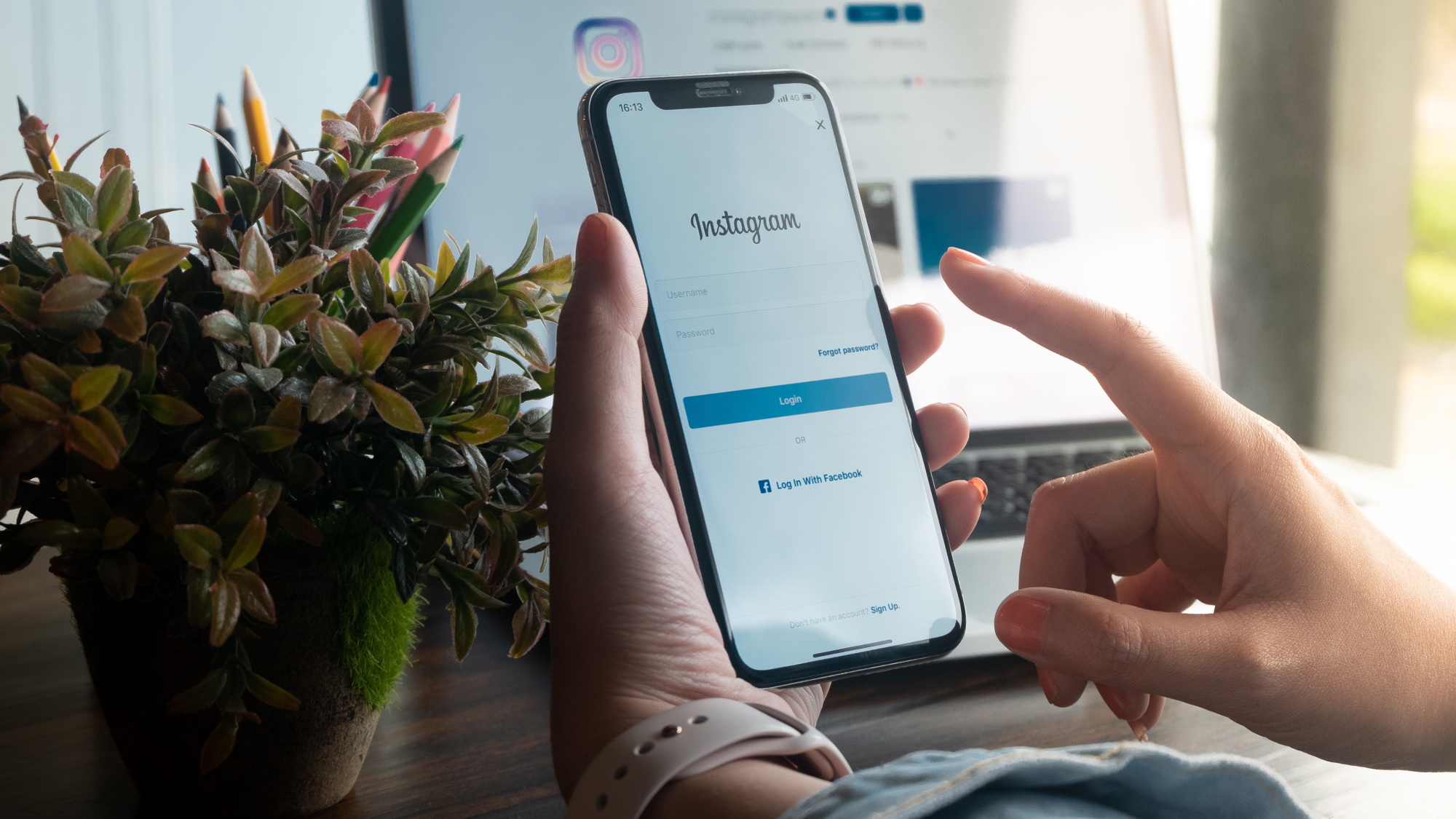
How does a VPN drain iPhone battery?
As an app that sits on your phone right alongside other iOS apps, ExpressVPN and other VPN clients for iPhone will use up battery as they run. Of course, VPN has to run in the background as you complete other tasks. Much like emails where you receive push notifications, or any kind of mapping app that allows you to navigate where you're going on a journey, they run quietly in the background, therefore using up battery and, indeed, data if you're out of reach of Wi-Fi.
How much battery it uses up can depend on a number of things, too, including:
- How strong your signal is whether on Wi-Fi or 3G/4G/5G - this is the case with or without VPN usage, with your handset having to crank up the power to deliver on tasks when signal is low.
- CPU - it's likely the iPhone 12 Pro worked well under the pressure of a switched on VPN because its CPU is optimised to work more efficiently with no detriment to battery life. It's probably fair to say, then, that older iPhone models will have batteries that drain faster.
- Encryption level - there are a variety of encryption formatting options out there depending on just how secure you need your information to be. This of course uses up more processing power when heavily encrypted.
How you can save battery life when using a VPN on iPhone
- Only turn on your VPN on your iPhone when you need it and turn it off when you don't.
- If you're finding your VPN is draining your iPhone at an exceptional rate, it may be worth trying out a different VPN provider. There are plenty of fantastic options out there. The same goes for the best iPad VPN, with each service having its own perks and weaknesses.
- See what settings options there are for your VPN - some may offer battery saver mode features, switching off features you don't need, or even boasting a auto-connect function so it only connects to a server when it detects an untrustworthy connection.
Why to use a VPN on iPhone
There are plenty of reasons to use a VPN on your iPhone, as well as across your Apple devices - why not find the best Mac VPN for you with our dedicated buying guide?
While Apple is known for building gadgets that are incredibly secure in comparison to its Windows and Androids counterparts, malicious hackers and malware are out there to make every attempt to break through and steal your sensitive information and spy on what you're up to. For security's sake alone, having a decent VPN for your iPhone helps to keep your details under lock and key, encrypting any data end-to-end as you carry out the likes of online shopping, or whilst dealing with private information at work.
If your download speeds are lagging, hopping on a VPN can also deliver lightening fast speeds with many VPN providers offering thousands of servers across the globe that could give your connection that extra omph.
Of course, with servers all around the world, this also blows any geo-restrictions you're faced with out of the park. If you're holidaying abroad but want to access your Netflix subscription, hopping on a server based in your native country can open up the gates to watch as if you were right at home.
Similarly, if you face blocks on websites or apps when travelling, or in an office or school, changing your server can allow you to bypass any of this geo-restricted content.
- Discover how to connect a VPN on your iPad with our handy guide
- Android fan? You can see which provider got the best Android VPN top spot
- Unsure what the fuss is all about? Here's why you should use a VPN on your phone

Alice is eCommerce Editor at Future, with a focus on streaming services such as Disney Plus, Hulu, and HBO Max, as well as VPN. Nowadays she looks after and writes guides and how to watch articles across TechRadar and CinemaBlend. Previously a Commercial Content Writer for Trusted Reviews, Alice has worked in the eCommerce space for over five years and over two years writing about consumer tech.
-
 How to watch FREE Super Bowl 2023 live streams online now - global channels explained
How to watch FREE Super Bowl 2023 live streams online now - global channels explainedLooking for a free Super Bowl live stream to watch the Philadelphia Eagles vs Kansas City Chiefs? Here are the best legal ways to tune in without spending a dime
By Sam Cross
-
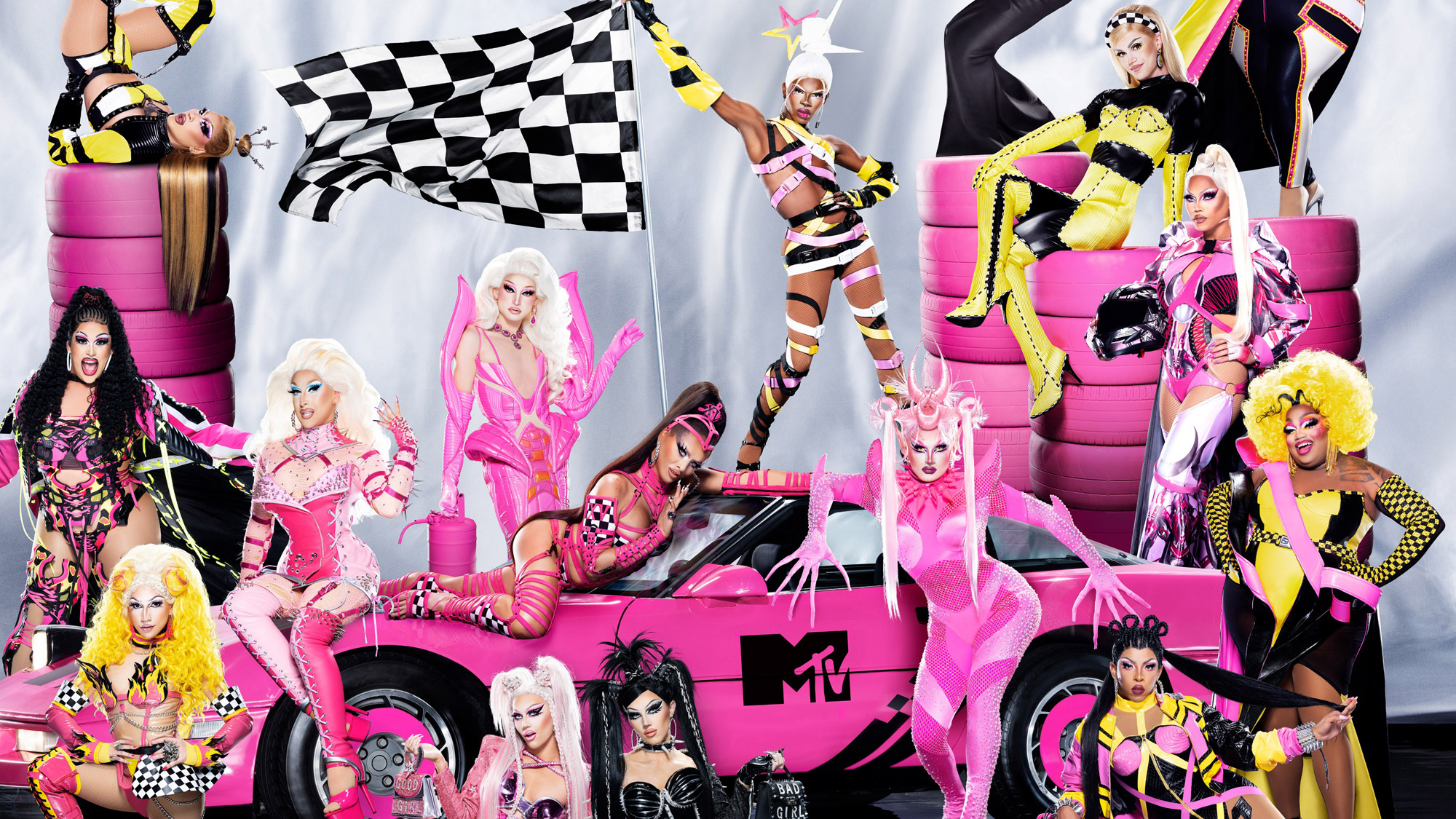 How to watch RuPaul's Drag Race season 15 online and stream new episodes every week from anywhere
How to watch RuPaul's Drag Race season 15 online and stream new episodes every week from anywhereA super sweet 16-drag queens contest to become the next superstar. Follow the fierce journey and find out how to watch RuPaul's Drag Race season 15 online and on catch-up
By Alice Marshall
-
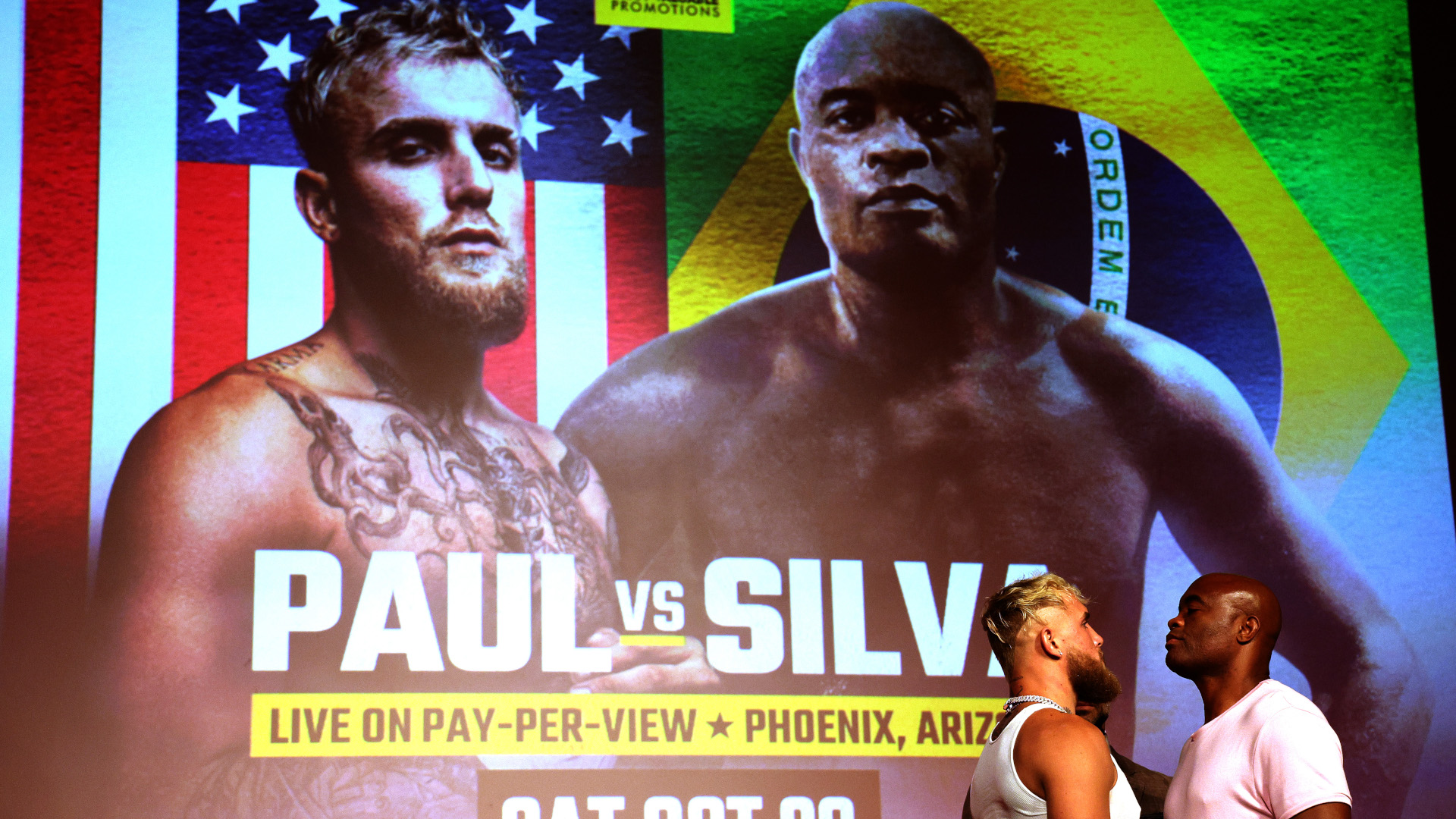 Jake Paul vs Anderson Silva live stream: how to watch the full fight online today, start time, PPV prices
Jake Paul vs Anderson Silva live stream: how to watch the full fight online today, start time, PPV pricesLive stream the fight from anywhere
By Kevin Lynch
-
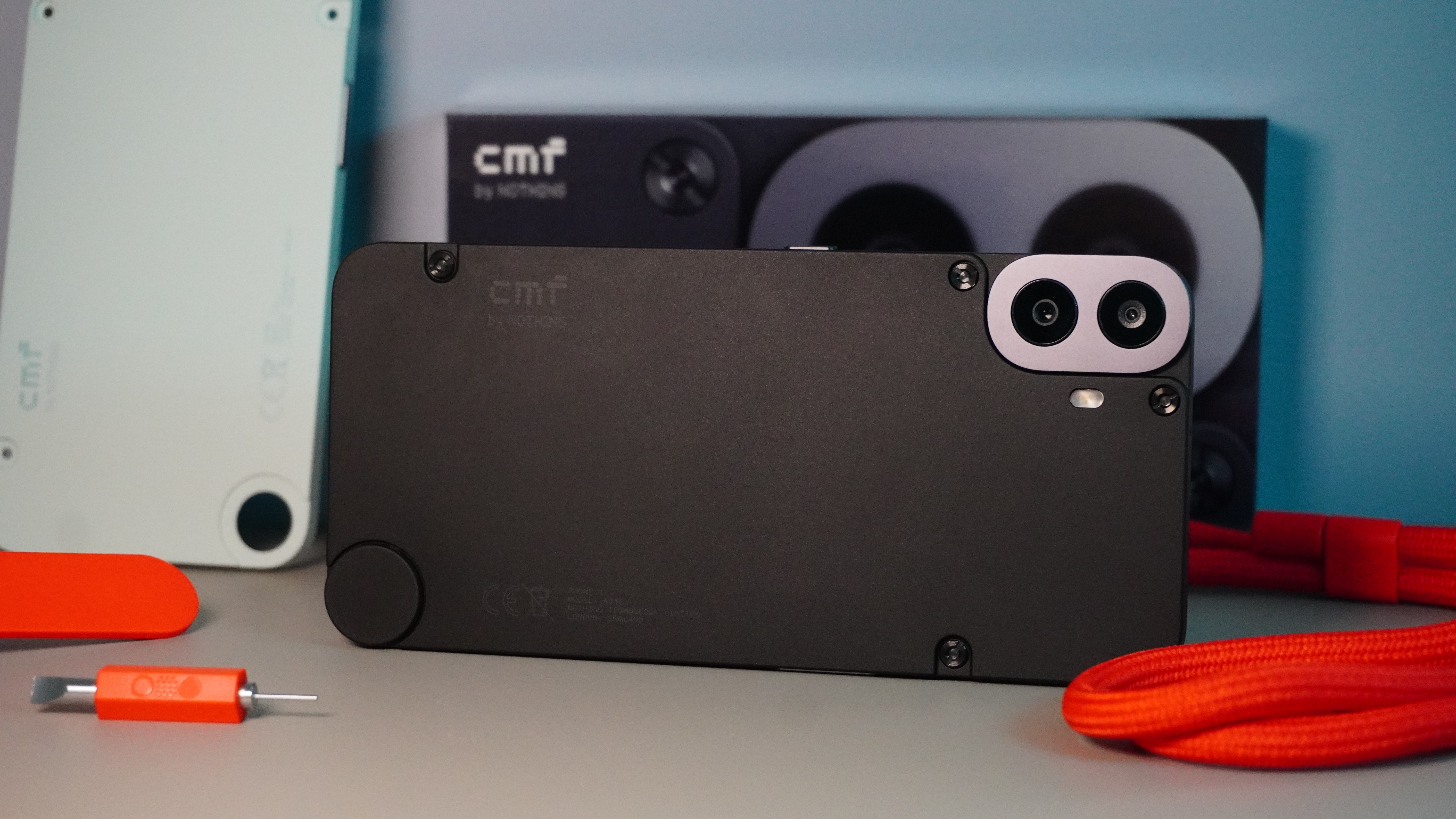 Nothing's next phone could be a budget powerhouse, thanks to this confirmed hardware detail
Nothing's next phone could be a budget powerhouse, thanks to this confirmed hardware detailOfficial details reveal more about the next phone coming from Nothing
By Chris Hall
-
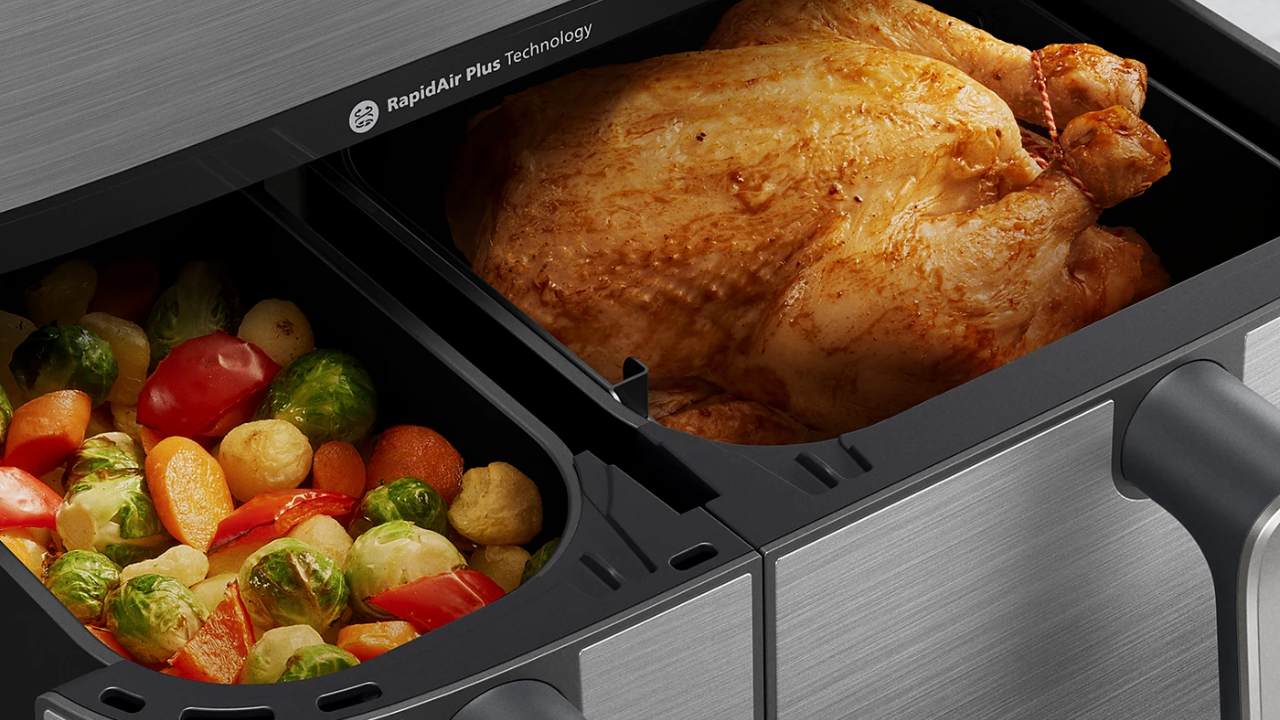 The biggest mistake you’re making when cooking Easter lamb in an air fryer
The biggest mistake you’re making when cooking Easter lamb in an air fryerCooking Easter lunch in your air fryer? Don’t make this mistake…
By Bethan Girdler-Maslen
-
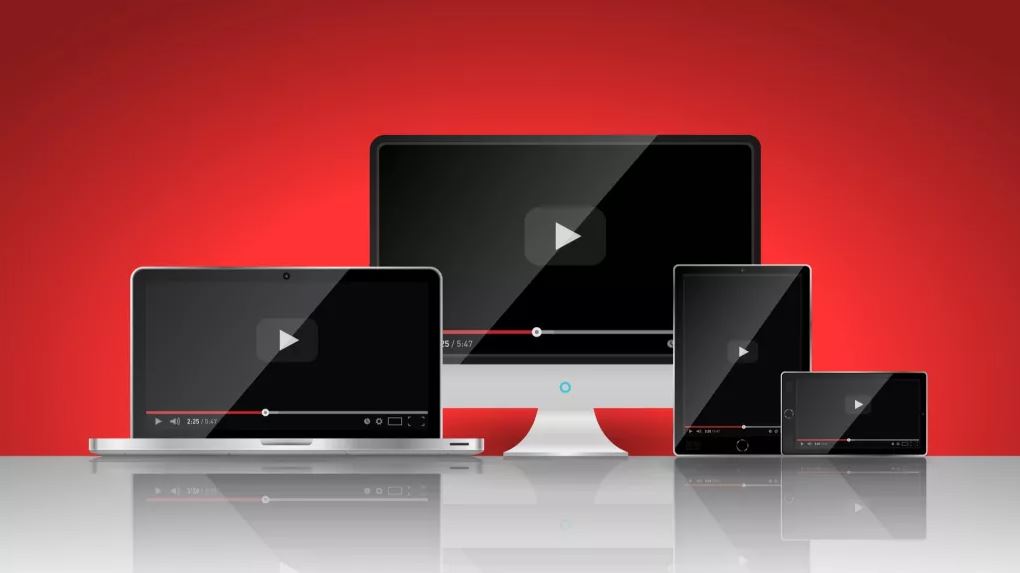 10 best VPN services for the everyday user in 2025
10 best VPN services for the everyday user in 2025Boost your digital privacy and unblock content from around the world with a VPN, and check out my top 10 apps.
By Alice Marshall
-
 5 best Mac VPNs for your MacBook or iMac 2025
5 best Mac VPNs for your MacBook or iMac 2025Protect your Mac from malware and hackers with the best macOS-compatible VPNs
By Alice Marshall
-
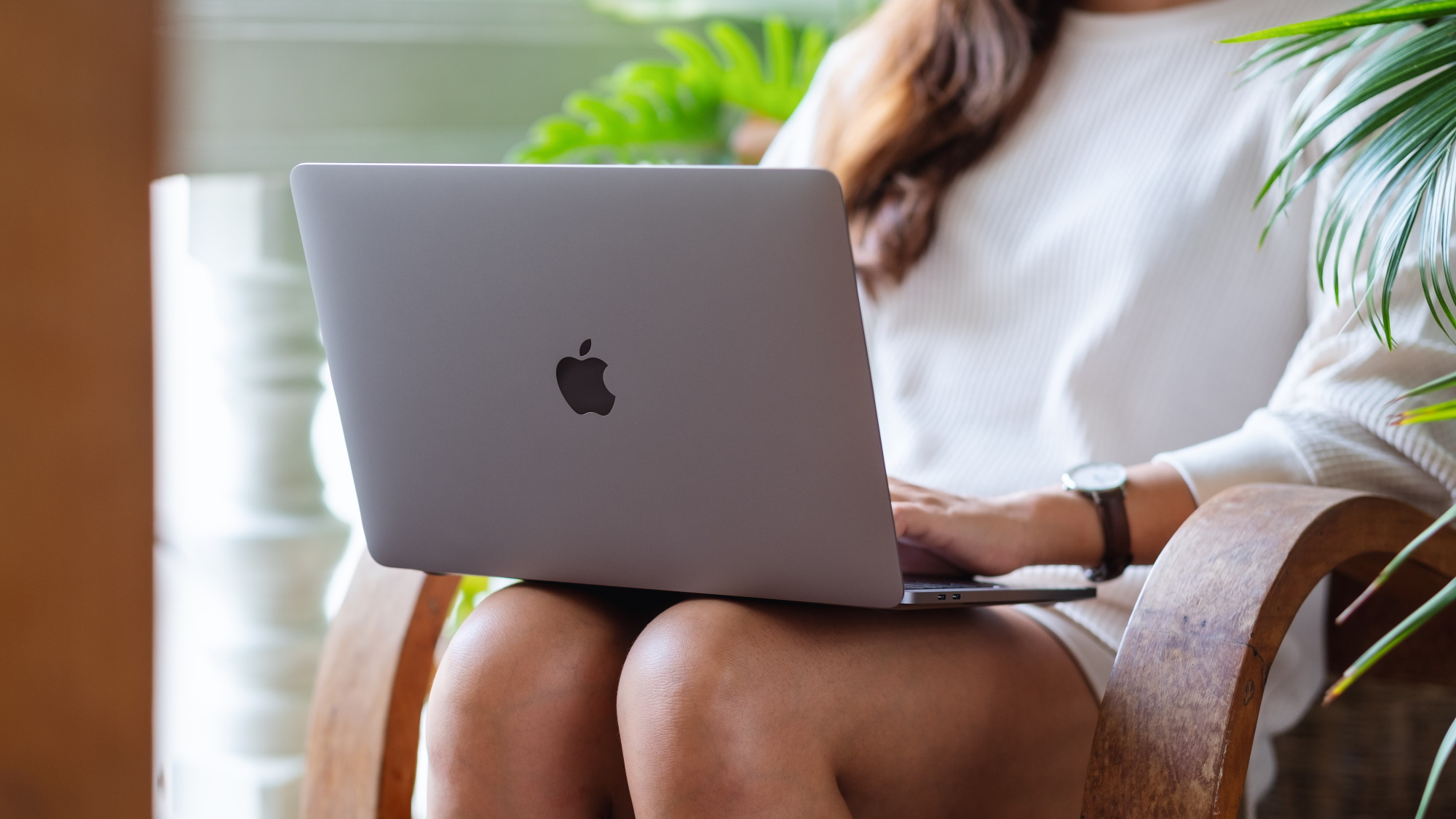 Do Macs have a built-in VPN?
Do Macs have a built-in VPN?Apple may be known for its secure devices, but we answer whether or not its Mac computers have a built-in VPN, or if you'll need to install a third-party provider
By Alice Marshall
-
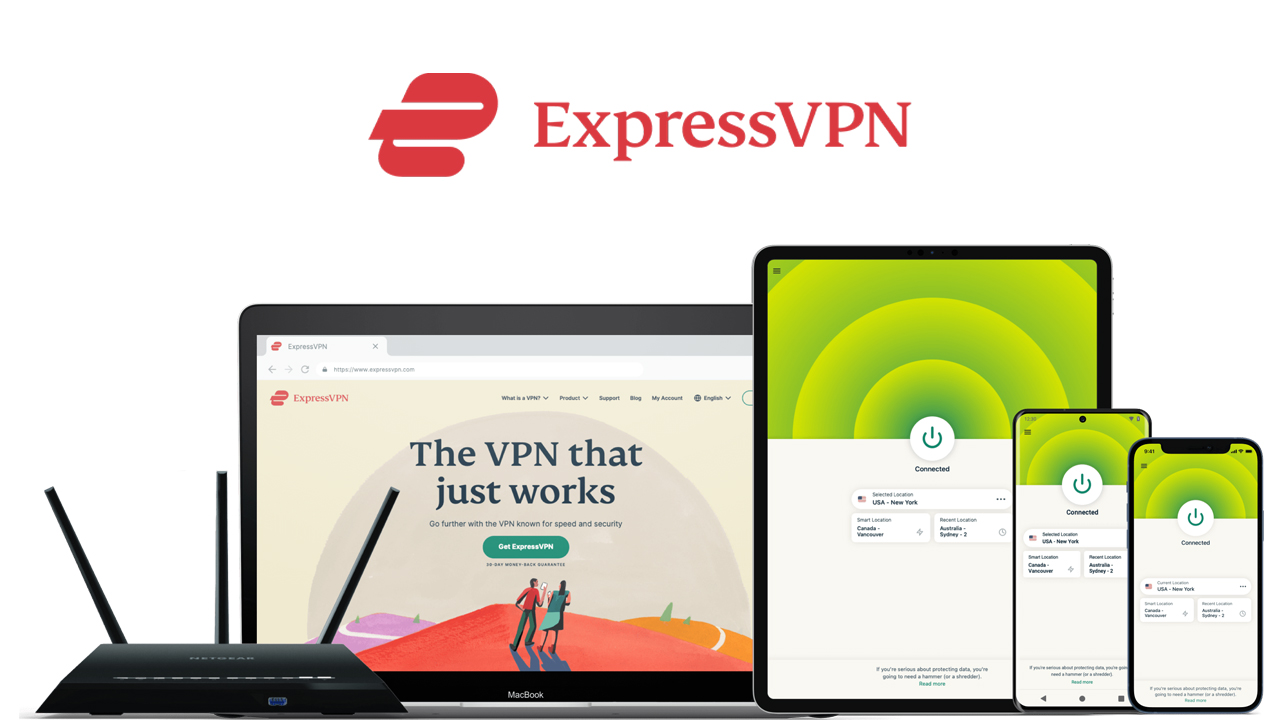 ExpressVPN review: T3’s pick for the best overall VPN
ExpressVPN review: T3’s pick for the best overall VPNExpressVPN retains its title as the overarching top dog in the war of VPNs thanks to its streaming unblocking prowess, excellent clients, an array of powerful security features
By Alice Marshall
-
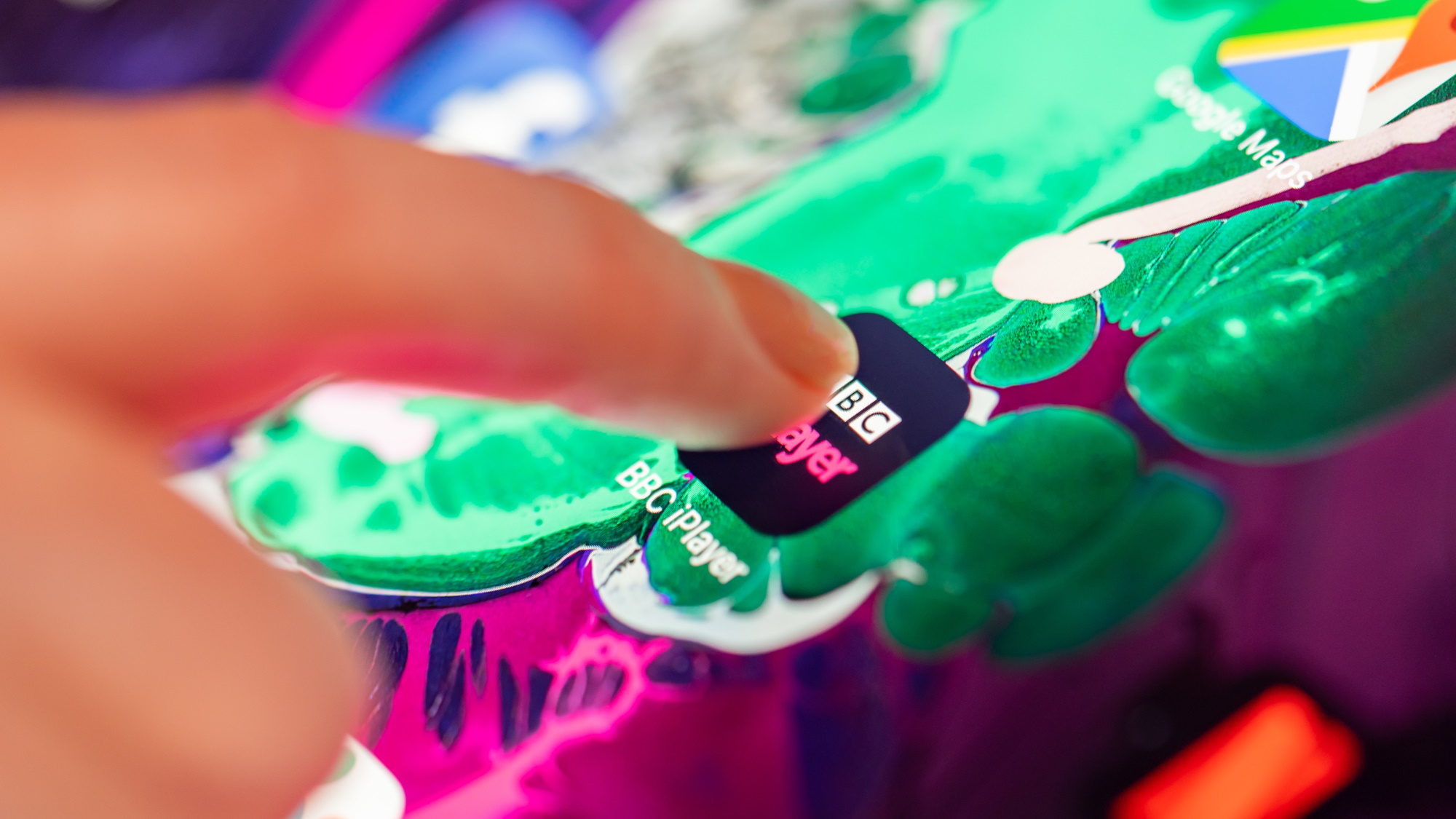 5 best BBC iPlayer VPNs in 2025
5 best BBC iPlayer VPNs in 2025Unblock BBC iPlayer, from anywhere in the world, with the help of a VPN
By Alice Marshall
-
 The best streaming VPN for unblocking your favorite platforms in 2025
The best streaming VPN for unblocking your favorite platforms in 2025Keep up with your favorite show with a streaming VPN
By Alice Marshall
-
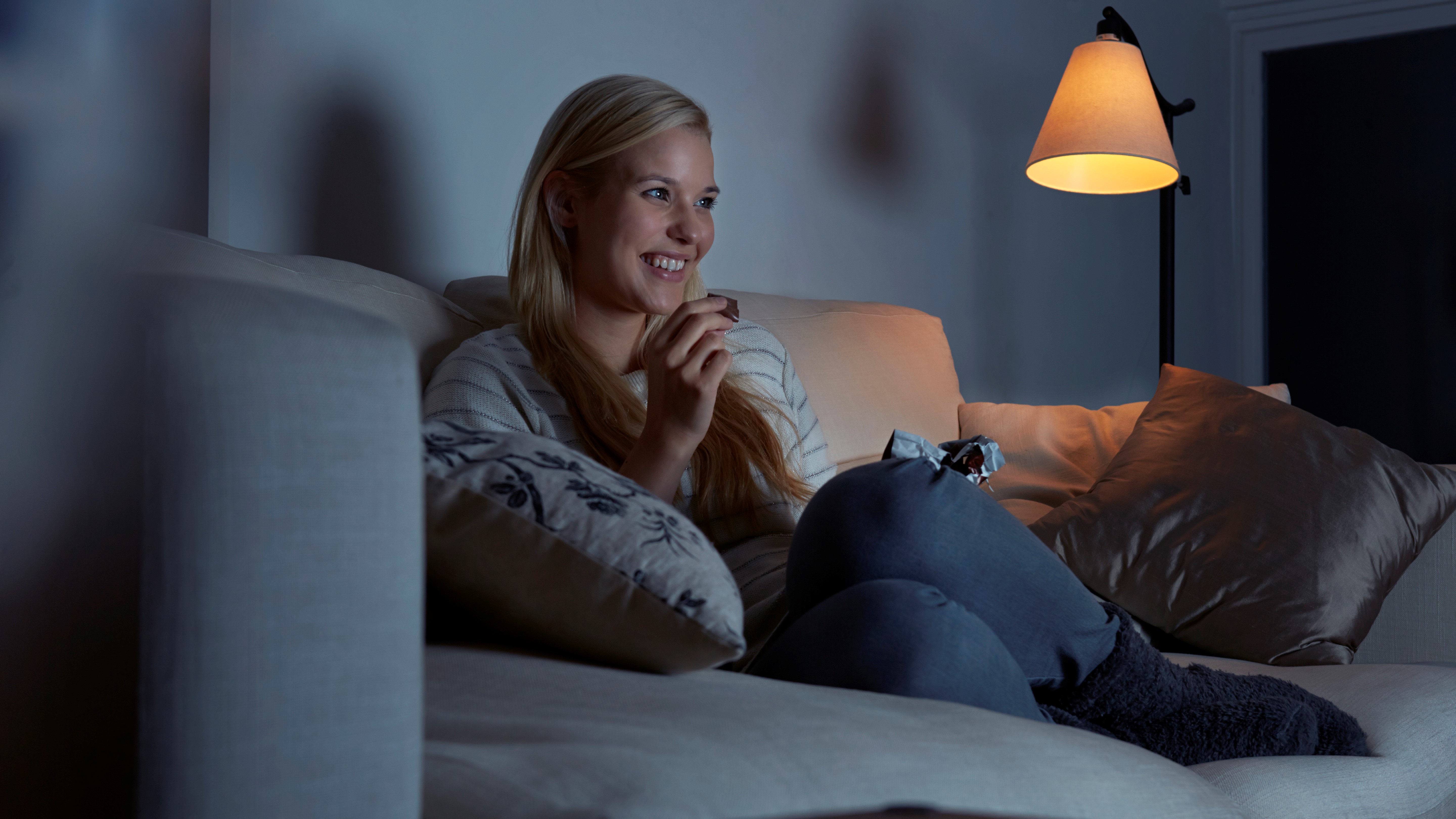 How to watch UK TV from abroad with a VPN including BBC iPlayer and All 4
How to watch UK TV from abroad with a VPN including BBC iPlayer and All 4Don't get locked out by pesky geo-restrictions. There's a simple solution to watching UK TV abroad with our handy guide
By Alice Marshall
-
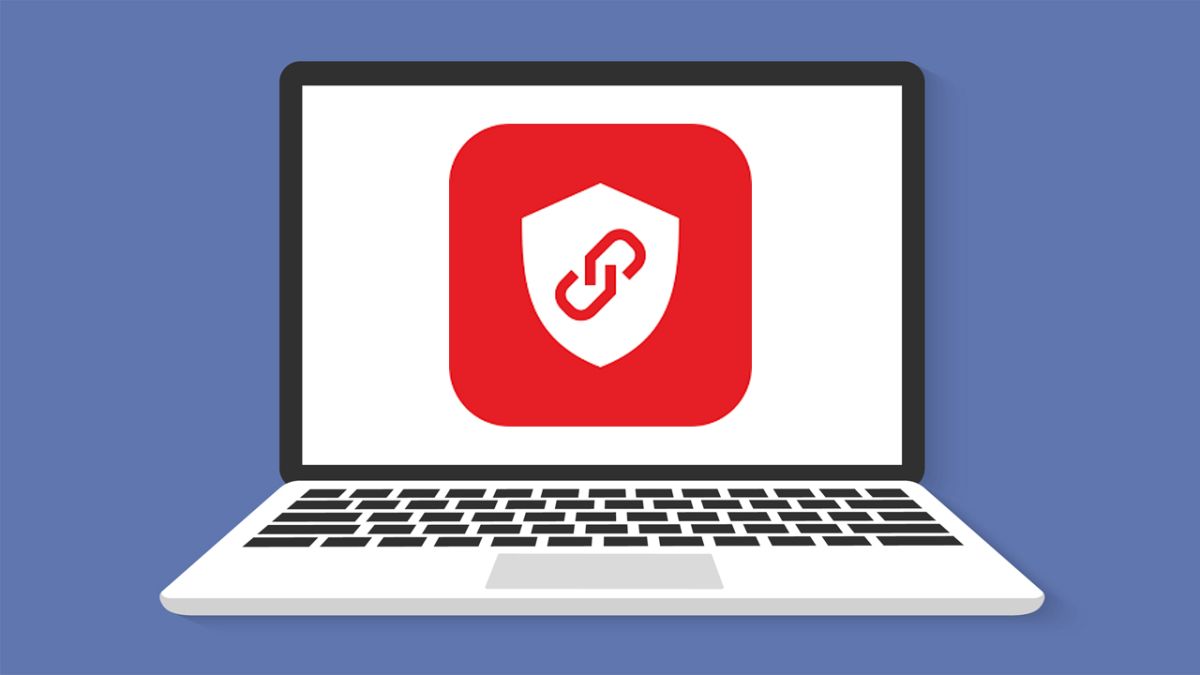 Bitdefender VPN review: Simplicity and speed
Bitdefender VPN review: Simplicity and speedBitdefender VPN comes from a huge name in security yet offers a very minimal and easy to use service
By Luke Edwards
